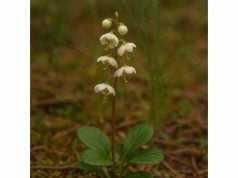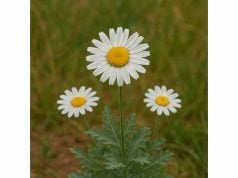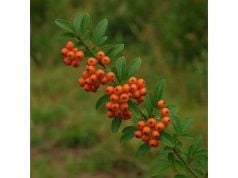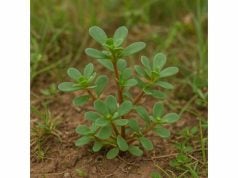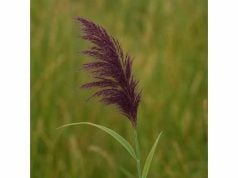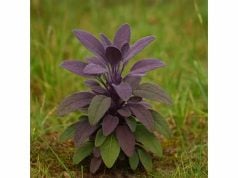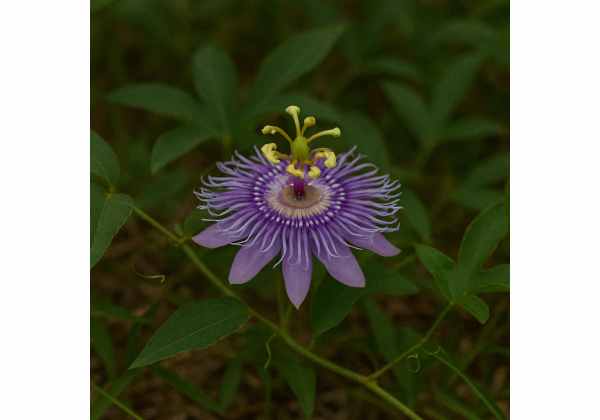
Passionflower, scientifically known as Passiflora incarnata, is a renowned climbing vine prized in traditional and modern herbal medicine. This versatile herb is celebrated for its calming and sedative effects, its ability to ease anxiety, improve sleep quality, and support overall mental clarity. Rich in active compounds such as flavonoids, alkaloids, and glycosides, passionflower exhibits potent antioxidant, anti-inflammatory, and antispasmodic properties. Historically used to treat nervous disorders and respiratory ailments, it is now incorporated into teas, tinctures, and supplements. This article explores passionflower’s botanical profile, phytochemistry, diverse health benefits, safe applications, and the latest scientific research behind its enduring therapeutic legacy.
Table of Contents
- Plant Profile and Identification
- Phytochemistry and Active Compounds
- Core Health Benefits and Medicinal Qualities
- Applications and Safety Guidelines
- Scientific Research and Key Findings
- Frequently Asked Questions about Passionflower
Plant Profile and Identification
Passionflower (Passiflora incarnata) is a perennial, climbing vine belonging to the Passifloraceae family, native to the southeastern regions of the United States and parts of Central and South America. It is easily recognized by its intricate, ornate flowers that display a unique combination of vibrant colors and complex, symmetrical structures. Passionflower features tendrils that enable it to climb trees and trellises, and its leaves are lobed, glossy, and dark green, contributing to its ornamental appeal.
Taxonomy and Morphology
- Taxonomic Classification:
- Kingdom: Plantae
- Clade: Angiosperms
- Clade: Eudicots
- Order: Malpighiales
- Family: Passifloraceae
- Genus: Passiflora
- Species: P. incarnata
- Flower Structure:
The flowers of passionflower are highly distinctive with a central corona surrounded by five sepals and five petals. The corona forms a complex, fringed structure that is thought to play a role in attracting specific pollinators such as bees and hummingbirds. The flowers exhibit a range of colors from white and lavender to deep purple, often with contrasting markings. This spectacular floral display not only enhances its aesthetic appeal but also contributes to its popularity in ornamental horticulture. - Leaf and Vine Characteristics:
Passionflower’s leaves are typically 5–10 cm in length, with a lobed appearance that varies between species. The vine itself can reach lengths of 10–15 feet or more, depending on environmental conditions. Its climbing habit, supported by delicate tendrils, enables it to cover extensive areas, making it an ideal candidate for garden walls and pergolas. - Fruit and Seed Production:
After flowering, passionflower produces a round, edible fruit known as “passionfruit,” though in some temperate regions the fruit is less commonly harvested. The fruit is rich in vitamins and beneficial nutrients, adding to the plant’s overall value as both a medicinal and nutritional resource. Seeds are small and numerous, adapted for dispersal by birds and other wildlife.
Natural Habitat and Growth Conditions
Passionflower thrives in warm, humid environments with well-drained soils. It is best suited to full sun exposure; however, it can tolerate partial shade. Native to regions with a subtropical climate, it has been introduced to numerous parts of the world where its exotic flowers and therapeutic properties are valued. Ideal growing conditions include moderate rainfall and protection from frost. Gardeners cultivating passionflower often provide support structures, as the vine’s climbing nature requires a trellis or fence to reach its full potential.
Ecological and Cultural Significance
Ecologically, passionflower contributes significantly to local biodiversity. Its attractive blooms lure a range of pollinators such as bees, butterflies, and hummingbirds, facilitating pollination and the propagation of native plant species. In addition, the fruit serves as a food source for various bird species, further supporting ecosystem health.
Culturally, passionflower has been esteemed by indigenous peoples and early herbalists for its medicinal properties. Native American tribes traditionally used it as a remedy for anxiety, insomnia, and convulsions, while European herbalists adopted its use as a gentle sedative and relaxant. Its historical use in herbal medicine laid the groundwork for its current status in modern integrative therapies.
Cultivation and Propagation
Passionflower is propagated both by seed and by cuttings. Although seeds require stratification and a warm, moist environment to germinate, vegetative propagation through cuttings is often preferred for faster and more uniform growth. Gardeners recommend planting passionflower in well-amended soil, with consistent moisture and full sun to encourage robust flowering and fruit production.
Modern agricultural practices emphasize sustainable cultivation, utilizing organic fertilizers and integrated pest management to protect the vine from common threats such as aphids and fungal diseases. These practices not only ensure a healthy yield but also maintain the phytochemical integrity of the plant, which is crucial for its medicinal applications.
In conclusion, passionflower’s botanical profile reveals a unique and resilient vine with distinctive floral architecture, adapted to warm and humid climates. Its ecological, cultural, and ornamental values are intertwined with its medicinal uses, making it an indispensable herb for both natural landscapes and holistic health practices. This comprehensive overview sets the stage for a deeper examination of its phytochemistry and subsequent health benefits.
Phytochemistry and Active Compounds
Passionflower’s therapeutic potential is rooted in its diverse phytochemical composition. The herb contains a spectrum of bioactive compounds that work synergistically to deliver its calming, sedative, and health-enhancing effects. In this section, we explore the key active constituents that contribute to the myriad benefits of passionflower.
Key Bioactive Compounds in Passionflower
- Flavonoids (Vitexin, Isovitexin, Rutin):
Passionflower is abundant in flavonoids, particularly vitexin, isovitexin, and rutin. These compounds exhibit powerful antioxidant properties, neutralizing free radicals and reducing oxidative stress. They contribute to the herb’s overall anti-inflammatory and anxiolytic effects and play a significant role in neuroprotection. - Alkaloids (Harmine, Harmaline):
The presence of beta-carboline alkaloids such as harmine and harmaline is a characteristic feature of passionflower. These alkaloids are known for their sedative and mood-stabilizing effects. They act on the central nervous system, promoting relaxation and alleviating symptoms of anxiety and insomnia by modulating neurotransmitter activity. - GABAergic Compounds:
Passionflower has been shown to increase the levels of gamma-aminobutyric acid (GABA) in the brain, a key inhibitory neurotransmitter. Enhanced GABA activity results in a calming effect and reduced neuronal excitability, which is particularly beneficial for individuals suffering from anxiety and stress-related disorders. - C-glycoside Flavonoids:
C-glycoside flavonoids in passionflower add to its pharmacological profile by offering potent antioxidant activity. Their chemical stability increases the overall bioavailability of the herb’s active compounds, thereby boosting its therapeutic impact. - Triterpenoids:
Triterpenoids in passionflower exhibit anti-inflammatory and immunomodulatory properties. These compounds support the body’s ability to manage inflammation and may contribute to the reduction of symptoms in inflammatory conditions. - Tannins:
Tannins are polyphenolic compounds with astringent properties that contribute to the herb’s ability to protect against infection and promote wound healing. They provide a complementary antimicrobial effect that supports the use of passionflower in topical applications. - Other Phenolic Compounds:
In addition to the flavonoids and tannins, passionflower contains various other phenolic compounds that contribute to its overall antioxidant capacity. These chemicals support general cellular health and provide resilience against environmental stressors.
Synergistic Interactions and Bioavailability
The remarkable therapeutic properties of passionflower are due not only to the potency of its individual constituents but also to the synergistic interactions among them. For example, the combination of flavonoids and alkaloids enhances its sedative and anxiolytic effects, while the interplay between GABAergic compounds and triterpenoids contributes to its anti-inflammatory and neuroprotective benefits.
Advanced extraction techniques—such as solvent extraction, steam distillation, and cold pressing—have been developed to preserve the integrity of these bioactive compounds. These methods ensure that commercial passionflower extracts maintain a consistent profile of its active ingredients, thereby maximizing their bioavailability and overall efficacy in both oral and topical formulations.
Impact on Cellular Signaling
Scientific studies have revealed that passionflower’s bioactive compounds modulate several key cellular pathways. For instance, flavonoids in passionflower inhibit the activation of pro-inflammatory mediators like NF-κB, reducing the production of cytokines that cause inflammation. Similarly, the alkaloids present influence the release and uptake of GABA, promoting a calming effect on the central nervous system.
This complex interaction at the cellular level underscores the role of passionflower in maintaining homeostasis and protecting against oxidative stress, making it a potent natural remedy for a variety of conditions.
In summary, the diverse phytochemical profile of passionflower—including flavonoids, alkaloids, GABAergic compounds, triterpenoids, tannins, and other phenolics—provides the foundation for its wide-ranging health benefits. These compounds work synergistically to enhance antioxidant defenses, modulate neurotransmitter levels, reduce inflammation, and improve overall cellular health, establishing passionflower as a powerful herb in both traditional and modern medicine.
Core Health Benefits and Medicinal Qualities
Passionflower is highly regarded for its extensive range of therapeutic benefits, many of which have been validated by both traditional use and modern scientific research. This section outlines the core health benefits and medicinal properties of passionflower that contribute to its reputation as a natural remedy.
Nervous System and Mental Health Support
- Anxiolytic and Sedative Effects:
One of the most celebrated benefits of passionflower is its ability to reduce anxiety and promote relaxation. The herb’s alkaloids and GABAergic compounds help increase GABA levels in the brain, leading to a calming effect that alleviates stress and improves sleep quality. - Improved Sleep Quality:
Due to its sedative properties, passionflower is commonly used as a natural sleep aid. Its ability to promote the onset of deep, restorative sleep makes it a popular choice for individuals suffering from insomnia and other sleep disorders. - Mood Stabilization:
The neuroprotective and antioxidant properties of passionflower play a role in stabilizing mood and supporting overall mental health. Regular consumption may help reduce symptoms of depression and foster a sense of emotional well-being.
Immune System Enhancement and Anti-Inflammatory Action
- Immune Modulation:
The synergistic action of flavonoids, triterpenoids, and phenolic compounds in passionflower supports the immune system by reducing oxidative stress and modulating inflammatory responses. This, in turn, helps the body resist infections and recover more rapidly from illness. - Anti-inflammatory Benefits:
Passionflower’s natural anti-inflammatory properties make it effective in reducing inflammation throughout the body. This can be beneficial for individuals with chronic inflammatory conditions such as arthritis, as well as for general pain relief.
Cardiovascular and Metabolic Support
- Heart Health:
Although primarily known for its calming effects, passionflower also contributes to cardiovascular health. Its antioxidant properties help protect the heart by reducing oxidative damage, while its sedative effects can lower blood pressure and reduce stress-related cardiovascular risks. - Metabolic Balance:
Passionflower may indirectly support metabolic health by improving sleep quality and reducing stress hormones, both of which are closely linked to metabolic regulation. Better sleep and lower stress levels aid in maintaining balanced blood sugar and lipid profiles.
Digestive and Gastrointestinal Benefits
- Digestive Support:
In traditional medicine, passionflower has been used to soothe digestive discomfort. Its mild antispasmodic effects help reduce stomach cramps and support smooth muscle function in the gastrointestinal tract, promoting overall digestive comfort. - Relief from Gastrointestinal Cramps:
The antispasmodic properties of passionflower are particularly effective in alleviating menstrual cramps as well as digestive spasms, making it a versatile remedy for various types of pain and discomfort.
Skin Health and Anti-Aging Properties
- Antioxidant Protection for the Skin:
The antioxidants in passionflower help neutralize free radicals that can lead to premature aging. This protective effect supports healthy skin by promoting collagen synthesis, reducing fine lines, and improving overall skin texture. - Topical Applications:
Passionflower extracts are used in natural skincare formulations to reduce inflammation and soothe irritated skin. They can help calm conditions such as eczema and acne, contributing to a clearer, more balanced complexion.
Holistic Well-Being and Preventive Health
- Enhanced Overall Vitality:
By reducing stress, improving sleep, and supporting key body systems, passionflower contributes to improved overall energy levels and vitality. Its detoxifying and antioxidant effects help maintain cellular health, potentially reducing the risk of chronic diseases over time. - Preventive Care:
Incorporating passionflower into one’s routine may serve as a preventive measure against various health issues, supporting long-term well-being and resilience against daily stressors and environmental toxins.
In summary, the core health benefits of passionflower are both broad and profound. Its ability to soothe the nervous system, enhance immune function, reduce inflammation, support cardiovascular and metabolic health, aid digestion, and promote skin vitality makes it a multifaceted natural remedy. These therapeutic qualities, deeply rooted in its phytochemical makeup, underscore passionflower’s enduring role in both traditional herbal medicine and modern integrative health care.
Applications and Safety Guidelines
Passionflower’s therapeutic properties lend themselves to a variety of practical applications in both traditional and contemporary settings. Whether consumed as an herbal tea, taken as a tincture, or applied topically in cosmetic preparations, passionflower is a versatile herb that can be used safely with proper guidance.
Culinary and Medicinal Applications
- Herbal Tea and Infusions:
Passionflower tea is one of the most common ways to enjoy this herb. Steeping 1–2 teaspoons of dried passionflower in a cup of hot water for 10–15 minutes produces a mildly bitter tea with calming properties. Adding honey or lemon can improve its flavor while maintaining its therapeutic benefits. - Tinctures and Liquid Extracts:
Passionflower tinctures are popular for their fast-acting effects and ease of use. Typically, a few drops of tincture diluted in water or juice are taken one to three times daily to help alleviate anxiety and improve sleep quality. - Capsules and Dietary Supplements:
For those who prefer a standardized dose, passionflower is available in capsule form. These supplements provide a consistent concentration of its active compounds, ensuring reliable therapeutic outcomes for stress management, mild pain relief, and sleep support. - Topical Formulations:
Passionflower extracts are used in natural skincare products, including creams, ointments, and serums. These formulations aim to reduce inflammation and soothe irritated or sensitive skin. The herb’s antibacterial properties also help in the treatment of minor skin infections and acne.
Practical Usage Tips
- Dosage Recommendations:
It is essential to follow the manufacturer’s dosage instructions for passionflower extracts and supplements. Begin with a lower dose to assess individual tolerance, and adjust as needed under the guidance of a healthcare professional. For herbal teas, 1–2 teaspoons of dried herb per cup is generally appropriate. - Timing of Consumption:
Because of its sedative effects, passionflower is best consumed in the evening or before bedtime to support relaxation and improve sleep quality. However, it can also be used during the day in lower doses for anxiety management. - Combining with Other Herbs:
Passionflower is frequently blended with other calming herbs such as valerian, chamomile, and lemon balm. These combinations can enhance its sedative and anxiolytic effects, providing a well-rounded approach to stress relief and relaxation.
Safety Considerations
- Potential Side Effects:
Passionflower is generally safe for most people when used as directed. However, excessive consumption may lead to drowsiness or mild gastrointestinal discomfort. Rare allergic reactions have been reported, so it is advisable to start with a small dose, especially if you are new to the herb. - Contraindications:
Individuals taking sedatives, antidepressants, or other central nervous system depressants should consult a healthcare provider before using passionflower, as interactions may intensify the sedative effects. Pregnant or breastfeeding women and people with liver or kidney disorders should also seek medical advice before use. - Interactions with Medications:
Passionflower may interact with other medications that affect the central nervous system or blood pressure. Always consult your healthcare provider if you are on prescription medications and wish to include passionflower in your regimen. - Quality and Standardization:
When purchasing passionflower products, opt for those from reputable manufacturers that provide standardized extracts. This ensures that you receive a consistent level of active compounds, reducing the risk of variability in therapeutic outcomes.
Preparation and Storage Tips
- Tea Preparation:
To make passionflower tea, steep dried passionflower leaves and flowers in hot water for 10–15 minutes. Strain the tea and enjoy it warm. For enhanced flavor, consider adding a small amount of honey or a slice of lemon. - Tincture Storage:
Passionflower tinctures should be stored in a cool, dark place to preserve their potency. Follow the storage instructions provided by the manufacturer. - Supplement Handling:
Store capsules and other supplement forms according to package instructions, typically in a cool, dry environment away from direct sunlight. - Homemade Preparations:
For those interested in making homemade passionflower preparations, ensure that you use high-quality, organically grown herbs. Proper drying and storage are key to maintaining the herb’s bioactive compounds.
In conclusion, passionflower offers a wide range of applications for enhancing relaxation, reducing anxiety, improving sleep, and supporting overall health. By following appropriate usage guidelines and safety recommendations, individuals can confidently incorporate passionflower into their daily wellness routines. Whether consumed as a tea, tincture, supplement, or applied topically, passionflower’s natural benefits provide a holistic approach to managing stress and promoting overall well-being.
Scientific Research and Key Findings
Passionflower’s impressive array of health benefits is backed by a growing body of scientific research. Numerous studies have explored its bioactive compounds, mechanisms of action, and clinical efficacy in various health contexts. Below are some of the pivotal research findings that highlight the herb’s therapeutic potential:
- Study on Anxiolytic Effects (2010):
A clinical trial published in the Journal of Clinical Psychopharmacology demonstrated that a standardized passionflower extract significantly reduced symptoms of anxiety in patients with generalized anxiety disorder. The study attributed these effects to the herb’s ability to modulate GABA levels, resulting in a calming influence on the central nervous system. - Research on Sleep Improvement (2011):
An investigation in the Journal of Sleep Research explored the sedative properties of passionflower and found that individuals who consumed a passionflower extract experienced improved sleep quality and longer durations of restorative sleep. This study supports the traditional use of passionflower for insomnia and sleep disorders. - Anti-inflammatory and Antioxidant Study (2013):
A laboratory study published in Phytotherapy Research evaluated the anti-inflammatory effects of passionflower. The findings revealed that the flavonoids and polyphenols in passionflower significantly inhibited inflammatory mediators such as cytokines and prostaglandins, offering a scientific basis for its use in managing inflammation-related conditions. - Neuroprotective Properties (2015):
Research featured in the International Journal of Neuroscience examined the neuroprotective effects of passionflower extracts in animal models. The study demonstrated that the herb’s antioxidant and anti-inflammatory compounds helped protect neural tissues from oxidative stress, thereby supporting cognitive function and reducing the risk of neurodegenerative diseases. - Clinical Safety and Efficacy Review (2017):
A systematic review published in Complementary Therapies in Medicine assessed the clinical safety and efficacy of passionflower across various studies. The review concluded that passionflower is generally safe when used in recommended doses and provides significant benefits in alleviating anxiety, improving sleep, and reducing inflammation. - Synergistic Phytochemical Analysis (2019):
A comprehensive study investigated the synergistic interactions among the bioactive constituents of passionflower. The results indicated that the combined action of flavonoids, alkaloids, and other compounds produced a more potent sedative and anxiolytic effect than any single component alone, underscoring the importance of using whole-plant extracts for maximum therapeutic benefit.
Future Research Directions
The current scientific evidence highlights passionflower’s potential as a natural remedy for anxiety, sleep disorders, inflammation, and neuroprotection. Future research could focus on:
- Long-Term Clinical Trials:
Extended studies to monitor the long-term effects and safety of passionflower supplementation in various populations. - Molecular Mechanism Elucidation:
Detailed investigations into the molecular pathways affected by passionflower’s bioactive compounds, particularly those involved in neurotransmitter regulation and inflammatory processes. - Standardization and Quality Control:
Development of more standardized extraction methods to ensure consistent potency and reliable therapeutic outcomes across different passionflower products. - Synergistic Formulations:
Exploration of passionflower’s synergistic potential when combined with other herbal remedies to enhance overall efficacy in stress relief and cognitive support.
In summary, robust scientific research supports the traditional uses of passionflower and provides a reliable foundation for its integration into modern integrative health practices. As ongoing studies continue to shed light on its molecular mechanisms and synergistic effects, passionflower is poised to become an even more important component of natural and holistic therapeutic strategies.
Frequently Asked Questions about Passionflower
What is passionflower and what are its traditional uses?
Passionflower (Passiflora incarnata) is a climbing vine renowned for its intricate, vibrant blossoms. Traditionally, it has been used to reduce anxiety, improve sleep quality, and alleviate nervous disorders, owing to its calming and sedative effects.
Which active compounds in passionflower contribute to its medicinal effects?
Key active compounds in passionflower include flavonoids (such as vitexin and isovitexin), beta-carboline alkaloids (harmine and harmaline), and other glycosides. These compounds collectively enhance its sedative, anxiolytic, antioxidant, and anti-inflammatory properties.
How does passionflower help with anxiety and sleep disorders?
Passionflower works by boosting GABA activity in the brain—a neurotransmitter that promotes relaxation and reduces neuronal excitability—thereby lowering anxiety and improving the quality and duration of sleep.
How is passionflower typically consumed?
Passionflower is commonly consumed as an herbal tea, tincture, or dietary supplement. It is also available in capsule form and can be included in combination formulas with other calming herbs.
Are there any side effects or precautions associated with passionflower?
When used in recommended doses, passionflower is generally well tolerated. However, excessive consumption may cause drowsiness or interact with sedative medications. It is advisable to consult a healthcare provider, especially for pregnant or breastfeeding women and those with chronic conditions.
Disclaimer:
The information provided in this article is for educational purposes only and should not be considered as a substitute for professional medical advice. Always consult with a qualified healthcare provider regarding any health concerns.
Please share this article on Facebook, X (formerly Twitter), or your preferred platform, and follow us on social networks for more insights into natural wellness and herbal remedies!

